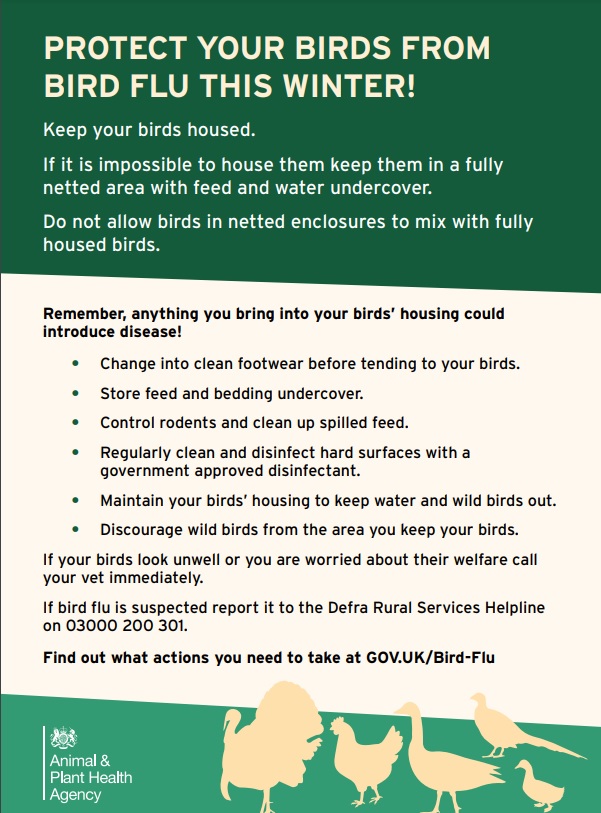Following the continued incidence of avian flu across the country and a heightened risk due to migratory flocks returning to the UK for the winter, the government has brought in new measures to protect poultry and captive birds from avian influenza.
This means that from Monday November 7, it will be a legal requirement for all bird keepers across the UK to keep their birds indoors – whether they have pet birds, commercial flocks or just a few birds in a backyard flock.
UK birdkeepers are also asked to undertake other strict biosecurity measures to help limit the spread of the disease and keep flocks safe. This includes regularly cleaning and disinfecting equipment, clothing and vehicles when entering or exiting sites and limiting access to non-essential workers or visitors.
If you keep captive birds such as poultry, including as pets, and you suspect avian influenza you must report this to DEFRA on 0300 0200301.
If a member of the public comes across a dead wild bird, they are asked to report it to DEFRA on 03459 335577 (select option 7) and not to touch or pick up any dead or visibly sick birds. Providing good location information for a dead or diseased bird is particularly important and location apps such as ‘what3words’, references can be very helpful. Philip Soderquest Director of housing and public protection at Northumberland County Council said:
“Wild birds migrating to the UK from mainland Europe during the winter months can carry the disease and where wild birds are allowed to mix with domestic birds, or there is a risk of contamination form bird droppings, this can lead to the disease spreading to captive birds.
“Unfortunately, there continues to be avian influenza in wild birds in the northern coastal area of Northumberland, so it is especially important that local bird keepers adhere to these new rules.”
UK Health Security Agency has confirmed that the risk to public health is very low and the Food Standards Agency has said that bird flu poses a very low food safety risk for UK consumers and it does not affect the consumption of poultry or eggs.
Bird keepers are also advised to be vigilant for any signs of disease in their birds and any wild birds, report suspected disease immediately and seek prompt advice from their vet if they have any concerns. Moving sick birds from premises should be avoided to help prevent any possible spread of disease.
For further advice
- Full guidance covering biosecurity requirements and other useful information about avian influenza, including the main clinical signs to look out for, can be found at https://www.gov.uk/guidance/avian-influenza-bird-flu. Bird keepers are encouraged to familiarise themselves with these details




